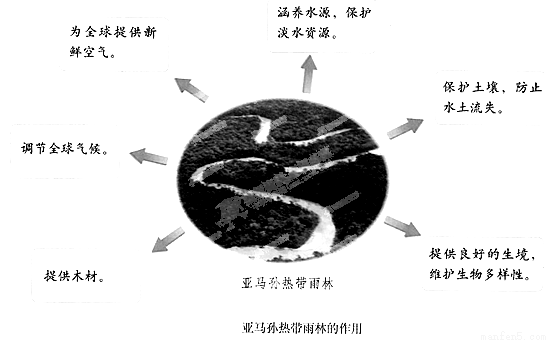Trudy, an American girl, tried swimming across the English Channel. That was August 6, 1962. Her father had ___1___ her two things. One was not to pull her out of the water ___2___ she asked. The other was to give her a red sports ___3___ if she made it.
In gay spirits Trudy ___4___ out, swimming strongly. All the swimmers started at 7:09 in the morning. Her father and the trainer were going along in a boat beside her. At ten o’clock, rain began falling.
___5___, Trudy trod(踩) water while drinking and eating a chicken leg. Then she started swimming ___6___. The wind was ___7___ and the sea became rougher. Late ___8___ the wind became even worse. The trainer ___9___ it was useless trying to finish. He called to Trudy to ___10___.
“No human being could do it in this weather,” he said. “It’s ___11___ to go on. “however, her father shouted, “Don’t grab her. Let her ___12___. “At seven o’clock the tides(潮水) turned ___13___ her. It was more difficult to move a- head. But Trudy still swam on. She ___14___ victory was possible now, for the English coast was in ___15___.
It was getting dark. A sound could be heard ___16___ the wind;hundreds of car horns(喇叭) were cheering her on. With ___17___ strength, she finished the last 200 yards. At 9:35p. m., Trudy got out of water. She had swum some 35 miles in ___18___ the 21-mile-wide Channel ___19___ a strong storm. But she had made it in 14 hours and 30 minutes. “Well, Pop,” she said to her father. “I ___20___ I get my car this time, don’t I?”
1. A. given B. refused C. allowed D. promised
2. A. as B. unless C. even if D. when
3. A. suit B. shoe C. hat D. car
4. A. rushed B. left C. started D. worked
5. A. At midday B. In the morning C. In the evening D. In the late afternoon
6. A. faster B. better C. again D. across
7. A. stopping B. rising C. changing D. increasing
8. A. morning B. afternoon C. evening D. night
9. A. thought B. considered C. decided D. felt
10. A. keep up B. slow down C. give up D. take a rest
11. A. difficult B. stupid C. impossible D. unnecessary
12. A. go B. decide C. come out D. go on
13. A. towards B. with C. at D. against
14. A. realized B. noticed C. found out D. thought
15. A. the distance B. reach C. sight D. hand
16. A. over B. in C. with D. from
17. A. fresh B. greater C. weakening D. remaining
18. A. flying B. swimming C. crossing D. passing
19. A. in spite of B. because of C. against D. during
20. A. demand B. am afraid C. hope D. guess
1-5DBDCA 6-10CBBCC 11-15BDDAC 16-20ADCAD解析:
1. D。promise 意为“答应、许诺”。此句意为:Trudy的父亲曾答应过两件事。
2. B。unless意为“如果不”。
3. D。由短文最后一句可知Trudy的父亲答应过另一件东西是car。
4. C。start out意为“起程、着手进行”,现在分词短语swimming strongly作状语,补充说明了start out所做的具体事情。
5. A。上文提到了在上午7点09分开始游泳,在10点开始下雨,可推知Trudy是在正在午(at midday)喝水和吃鸡腿。
6. C。由then可知,Trudy吃喝后又开始游泳了。
7. B。由the sea became rougher(海浪变得更大了)可知风力增强了(动词rise有“增强”之意)。
8. B。由前面的at midday和后面的at seven o’clock可知此时应为late afternoon。
9. C。decide 意为“决定”。此句应为教练所作出的决定
10. C。give up 意为“放弃”。由于风大浪高,不宜游泳。故教练作出决定,要Trudy放弃游泳。
11. B。此句指在这样恶劣的天气状况下,Trudy继续游泳是愚蠢的(stupid)行为,其他选项的形容词的意义均与句意不符。
12. D。Let her go on意为“让她继续游泳”。 Trudy的父亲坚持让Trudy继续游泳,而不让其他跟随游泳的抓住她。
13. D。turn against 意为“转而反对”,这里意为:潮水向Trudy涌来。
14. A。结合后面的信息:海岸已进入视力范围,可知此时Trudy意识到(realize)胜利在望。
15. C。be in sight 意为“被看见”。
16. A。over表示“通过某物传送”。这里指Trudy能够听见由风传送来的岸上的汽车喇叭的欢呼声。
17. D。remaining strength意为“剩余的力气”。
18. C。cross作动词用时意为“渡过、横过”。这里指Trudy横渡了英吉利海峡。
19. A。in spite of 意为“尽管、虽然”,表示让步状语,句意为:尽管狂风暴雨,Trudy还是游过了英吉利海峡。
20. D。guess 意为“猜测、认为、想”。此句意为:我想我这次得到了我的汽车。此车是她父亲曾许诺过的




